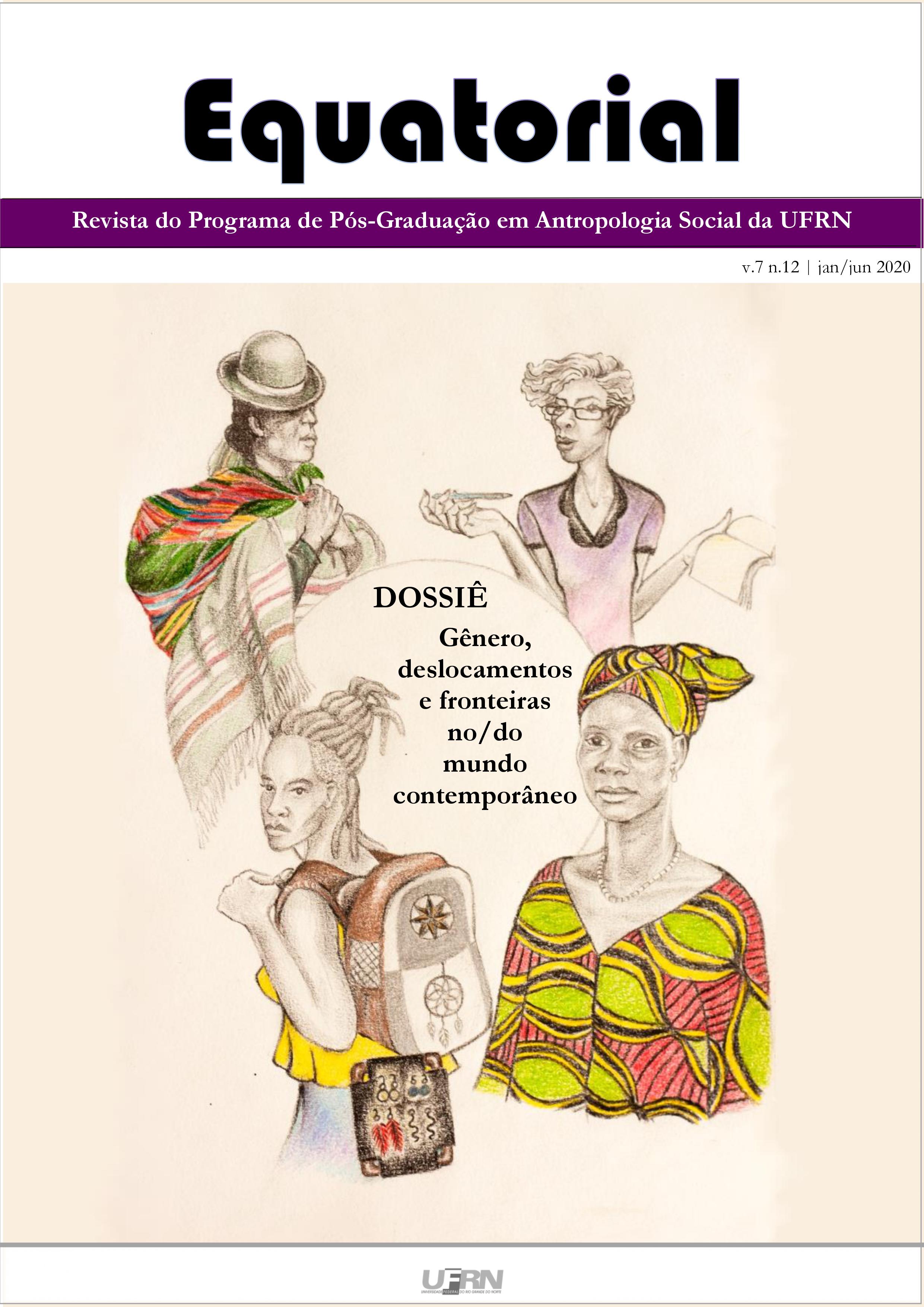The potentialities of black women in academic production
DOI:
https://doi.org/10.21680/2446-5674.2020v7n12ID18517Keywords:
academy; gender; black women; knowledge and power; black feminism.Abstract
Women have historically been excluded from the process of theorizing and searching for knowledge. In this sense, they were placed in the category of object to be studied and not as subjects of knowledge or even protagonists of the stories themselves. Moreover, if this occurred with women in general, black women, affected by the intersectionality of countless oppressions, were isolated even from learning, relegating them to the space of domestic or manual labor, without the right to academic instruction. Therefore, this article seeks to present methodological alternatives that suggest the inclusion of these women as subjects of their own knowledge and producers of their own stories.
Downloads
References
ADICHIE, C. N. O perigo da história única. TED TALK, 2009. Disponivel em: <https://www.ted.com/talks/chimamanda_adichie_the_danger_of_a_single_story/transcript?language=pt#t-1097541>. Acesso em: Julho 2018.
BEAUVOIR, S. D. O segundo sexo. Rio de Janeiro: Nova Fronteira, 2009.
BENTO, M. A. S. Branqueamento e branquitude no Brasil. In: BENTO, M. A. S.; CARONE, I. Psicologia social do racismo - estudos sobre branquitude e branqueamento no Brasil. Petrópolis: Vozes, 2002. p. 25-28.
CARNEIRO, S. Enegrecer o feminismo: a situação da mulher negra na América Latina a partir de uma perspectiva de gênero. Racismos contemporâneos, Rio de Janeiro, p. 49-58, 2003.
COLLINS, P. H. Black Feminist Though: Knowledge, Conciouness and the Politics of Empowerment. New York: Routledge, 2000.
COLLINS, P. H. Aprendendo com a outsider within: a significação sociológica do pensamento feminista negro. Revista Sociedade e Estado, v. 31, n. 1, p. 99-127, 2016.
EDKINS, J. Poststructuralism. In: GRIFFITHS, M. International Relations Theory for the Twenty-First Century. New York: Routledge, 2007. p. 88-98.
EVARISTO, C. Gênero e etnia: uma escre(vivência) de dupla fase. In: MOREIRA, N. M.; SCHNEIDER, L. Mulheres no mundo: etnia, marginalidade e diaspóra. João Pessoa: Idéia Editora Ltda, 2005. p. 201-212.
EVARISTO, C. Insubmissas lágrimas de mulheres. Belo Horizonte: Nandyala, 2011.
FERREIRA, A. C. Escrevivências, as lembranças afrofemininas como um lugar da memória afro-brasileira: Carolina Maria de Jesus, Conceição Evaristo e Geni Guimarães. Dissertação (Mestrado em Letras - Estudos Literários) - Programa de Pós-graduação em Letras: UFMG, 2013.
FOUCAULT, M. Power/Knowledge Selected Interviews and Other Writings, 1972-1977. New York: Pantheon Books, 1980.
FOUCAULT, M. A ordem do discurso (Aula inaugural no College de France. Pronunciada em 2 de Dezembro 1970). São Paulo: Loyola, 1996.
HARAWAY, D. Saberes Localizados: a questão da ciência para o feminismo e o privilégio da perspectiva parcial. Cadernos Pagu, v. 5, p. 07-41, 1995.
HARDING, S. A instabilidade das categorias analíticas na teoria feminista. Estudos Feministas, n. 1, p. 7-31, 1993.
HARDING, S. Objectivity and diversity: another logic of scientific research. Chicago: University of Chicago, 2015.
HARDING, S.; NORBERG, K. New Feminist Approaches to Social Science Methodologies: An Introduction. Signs: Journal of Women in Culture and Society, v. 30, n. 4, p. 2009-2015, 2005.
HARTSOCK, N. The Feminist Standpoint: Developing the Ground for a Specificaly Feminist Historical Materialism. In: HARDING, S. Feminist & Methodology. Bloomington, Indiana: Indiana University Press, 1986. p. 157-1980.
HOOKS, B. Ensinando a transgredir: a educaçaõ como prática da liberdade. São Paulo: Martins Fontes, 2013.
KILOMBA, G. Memórias da plantação - Episódios de racismo cotidiano. Rio de Janeiro: Cobogó, 2019.
LORDE, A. The Master's Tools Will Never Dismantle the Master's House. In: MORAGA, C.; ANZALDÚA, G. This Bridge Called My Back: Writings by Radical Women of Color. New York: Kitchen Table Press, 1983. p. 94-101.
LYNN DOTY, R. Imperial Encounters: The Politics of Representation in North-South Relations. Minneapolis: Minesota Press, 1996.
MOHANTY, C. T. Under Western eyes: Feminist scholarship and colonial discourses. Boundary 2, p. 333-358, 1983.
OKIN, S. M. Gênero, o público e o privado. Estudos Feministas, Florianópolis, v. 16, n. 2, p. 305-332, 2008.
OY?WÙMÍ, O. Conceptualizing Gender: The Eurocentric Foundations of Feminist Concepts and the challenge of African Epistemologies. African Gender Scholarship: Concepts, Methodologies and Paradigms. CODESRIA Gender Series, Dakar, v. 1, 2004.
SANDOVAL, C. Methodology of the Opressed. Minneapolis: University of Minnesota, 2000.
SCOTT, J. W. Igualdade versus diferencia: los usos de la teoría postestructuralista. Feminist Studies, v. 14, n. 1, primavera 1988.
SCOTT, J. W. Gênero: uma categoria util de análise histórica. Educação & Realidade, v. 20, n. 2, p. 71-99, 1995.
SPIVAK, G. C. Pode o subalterno falar? Belo Horizonte: UFMG, 2010.
Downloads
Published
How to Cite
Issue
Section
License
Autores mantém os direitos autorais e concedem à revista o direito de primeira publicação, com o trabalho simultaneamente licenciado sob a Licença Creative Commons Attribution que permite o compartilhamento do trabalho com reconhecimento da autoria e publicação inicial nesta revista.

 Português (Brasil)
Português (Brasil) English
English Español (España)
Español (España)


